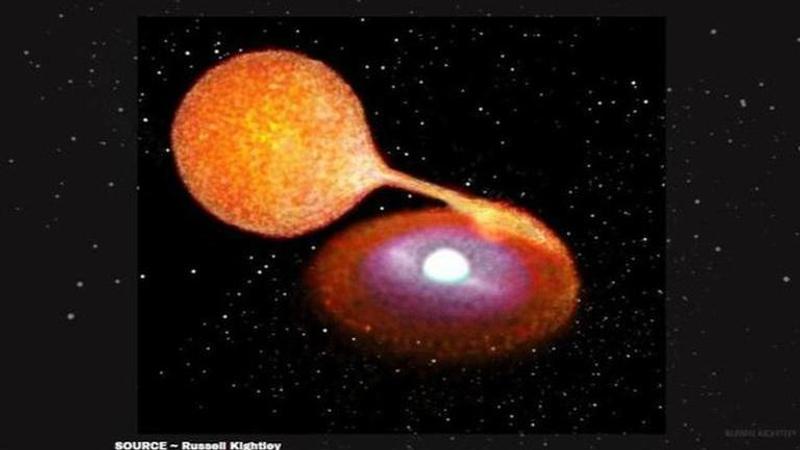Published 15:10 IST, August 28th 2020
Fastest-spinning White Dwarf discovered with a speed of 2 rotations/sec
Fastest-spinning White Dwarf has been discovered by astronomers in a latest study. The dwarf spins at a speed of 2 RPS and it is the fastest white dwarf ever.

The Sun is the biggest object in our solar system and as we all know that the heavenly bodies like Sun are denoted as Stars. However, it is said that the stars are not immortal, even they have a lifetime and when it is crossed, they explode and turn into a white dwarf consisting only carbon and oxygen elements. The process is quite long and it takes billions of years for it to occur. Nevertheless, a recent study reported by Space.com reveals that a white dwarf is spinning 2 rotations per second which is the fastest known speed of such objects. The dead star is also responsible for sucking down material from its twin in a binary system.
The Vampiric white dwarf - a pathbreaking space discovery
Image ~ NASA
The white dwarf is called J2056 is different from many of its members. It is formed as an intermediate polar system in which the companion star donates gas to the dead star that forms an accretion disk around the dwarf. The study accepted by the Astrophysics Journal on July 28 reveals that this fast-spinning dwarf is only capable of acquiring about the equivalent of Earth's atmosphere every year. This is not the only thing that makes J2056 stand out, what's also eyebrow-raising is that the dead star is not emitting a lot of X-ray radiation.
This fast spinning white dwarf rotates twice every second which means it takes roughly 29 seconds to complete one revolution. This is the fastest confirmed speed of a white dwarf. As per reports from Space.com, this dead star has a sound magnetic field which enables it to pull the material down onto its surface in quick streams. However, the dead star does not have a strong enough magnetic field that could hold down its rotation through electromagnetic interactions with the surrounding accretion disk.
Image ~ Juan V. Hernández Santisteban
The dead star J2056 will possibly become one of the greatest examples of a new class of cataclysmic variable stars and this study could bring forward a new way of looking at the white dwarf stars. The report also revealed that understanding j2056 could help astronomers understand more about the magnetic field and how it works around white dwarfs and it could open gates for a better understanding of how they live.
White dwarfs
Image ~ Shutterstock
The stars, after completing their lifetime, explode and turn into white dwarfs. These white dwarfs which were once massive stars are about the size of Earth with only Oxygen and Carbon elements. They can live on for a trillion years. Some white dwarfs are a part of a binary system which means they have a companion star that lends them gas which is why these dead stars have an accretion disk. The major property that a white dwarf has is that they radiate massive amount of X-rays. Before becoming a white dwarf, stars grow larger in size and red in colour, as per several studies.
Promo Image ~ Russel Kightley Official Website
Updated 15:11 IST, August 28th 2020






